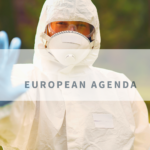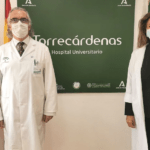Climate change threatens to undermine the past 50 years of gains in global public health through extreme heatwaves, threats to food and water systems, and changing patterns of infectious diseases.
The briefing ’Responding to the health risks of climate change in Europe’ highlights key health impacts from climate change as well as opportunities to reduce climate-related health risks through adaptation policies aligned with mitigation actions.
Weather and climate extremes are already leading to fatalities and negative health effects in Europe, the briefing reminds. Moreover, vulnerability to heat extremes continues to increase in Europe, due to a growing urban population, chronic health conditions becoming more common, and an increasing number of old people. At the same time, climate change is making some areas in Europe more suitable for various infectious diseases, including dengue fever, Vibrio infections and West Nile fever.
The briefing notes that, while all EU member states have strategies or plans for adaptation, actions addressing the climate threats to health lag behind and could be supported by more knowledge on effective solutions. Moreover, at the local level, adaptation to climate change remains in the domain of the spatial planning, urban design, or environmental departments, and public health professionals should get more involved.
The EU circular economy action plan
In line with EU’s 2050 climate neutrality goal under the Green Deal, the European Commission proposed a new Circular Economy Action Plan in March 2020, focusing on waste prevention and management and aimed at boosting growth, competitiveness and EU global leadership in the field.
On 27 January, Parliament’s environment committee backed the plan and called for binding 2030 targets for materials use and consumption. MEPs will vote on the report during the February plenary session.







Leave a Reply